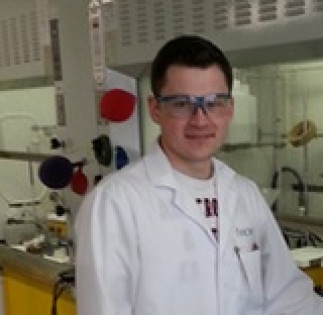‘‘ Synthesis of trans-Bicyclo[4.4.0]Galactopyranosides for the Design of Sialyl LewisX Glycomimetics ’’
Endroit : Pavillon Roger-Gaudry, salle G-415 à 11 h 00
Cette conférence sera prononcée par Monsieur Ryan Simard, candidat au doctorat, étudiant du Professeur Yvan Guindon, au département de chimie, de l'Université de Montréal.
RÉSUMÉ: The development of viable therapeutics mimicking sialyl LewisX (sLeX), the tetrasaccharide epitope responsible for binding to selectins is an important area of research and development. Selectins (E- and P-) are a family of cell adhesion molecules that mediate the capture and slow rolling of circulating leukocytes during the early stages of inflammation. Excessive recruitment of leukocytes is implicated in both acute and chronic pathologies of inflammatory diseases.
Effective P-selectin antagonists, recently developed by the Guindon laboratory, were synthesized by replacing the GlucNAc saccharide with an acyclic tartrate-based tether. The molecular plasticity granted by this tether may synergize with further preorganization of distal pharmacophores. Of the four carbohydrates, the Neu5Ac exhibits the most flexibility, and is commonly simplified with acyclic derivatives. In this project we propose, based on the spatial orientation of bound sLeX, that implementation of an annulated trans-bicyclo[4.4.0]galactopyranose architecture bearing an axial carboxylic acid would mimic the active conformation of the Neu5Ac-Gal linkage. These synthetically challenging scaffolds were initially constructed via elaboration of a galactoside moiety bearing an alkyne handle. The key element in this synthetic route is a stereoselective intramolecular cyclization, the nature of which is being studied both experimentally and computationally and is proposed to follow Curtin-Hammett kinetics. A second, divergent synthetic pathway featuring an orthogonal glycosylation strategy to rapidly access novel carboxylic acid bioisosteres is currently being investigated. The biological activity of these second-generation selectin antagonists is being assessed through in vitro cell-adhesion assays and in vivo peritoneal lavage experiments. Initial results show improved activity as compared to the native ligand (sLeX).

